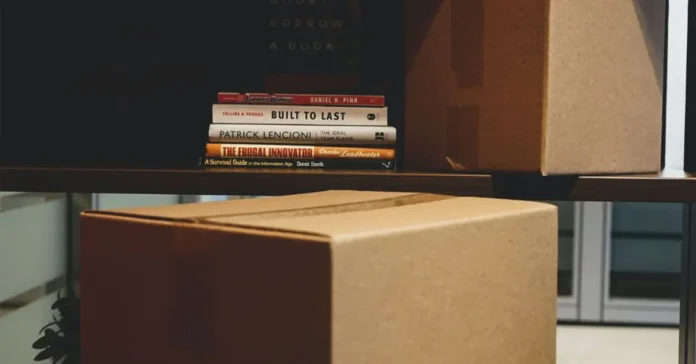In today’s fast-paced world, many people are discovering the benefits of living in a smaller, more efficient space. The downsizing home benefits are not only about moving to a smaller house but also about optimizing your living environment. Whether you’re an empty-nester looking to downsize after the kids move out or a retiree seeking a more manageable home.
This article will explore the upsides of downsizing, including cost savings, reduced maintenance, and a simplified lifestyle. We’ll also delve into the potential drawbacks, such as limited space and the emotional challenges of letting go of belongings. Before beginning the transition to a downsized lifestyle, carefully consider all relevant factors. To help you with your thoughts we have identified the main Pros and Cons of downsizing.
Downsizing Home Benefits – Overview
Downsizing offers a range of benefits such as reducing maintenance costs and utility bills and maximizing space utilization. It improves the quality of life. Join us as we explore the pros and cons of downsizing, helping you make informed decisions about your living space and embracing the benefits of a simpler, more streamlined lifestyle. This guide will provide valuable insights and practical tips to help you make informed decisions about optimizing your home space.
Advantages of Downsizing Your Home
Downsizing to a smaller home means less maintenance, lower bills, and more time to spend doing the things you enjoy. A downsizer can save up to 15% on rent per month. If you are currently renting out your current home, you can sell it and rent somewhere smaller. Renting a smaller apartment will allow you to travel and spend more time with family.
Here are some more pros to consider:
1. You will Realize the Financial Benefits
After downsizing to a smaller home, you may experience a financial benefit in the first few months. Reducing or eliminating your mortgage and/or property taxes frees up a significant amount of cash in your monthly budget. Here are a few reasons why downsizing makes sense from a financial angle:
- Your mortgage will be reduced
- Taxes will be reduced.
- You will save money on utilities every month.
The reduced living costs and new budget space can also give you the financial freedom to do things you have always wanted to do, such as:
- Travelling
- Returning to school
- Debt repayment
- Spending more time with your family on activities
- Taking in more entertainment
- Developing a new hobby
Whether you want to take a trip to experience foreign cultures or go on a cruise after being stuck at home for Covid, the financial freedom gained by reducing your monthly housing costs makes these goals much more achievable.
2. You will save time on Home Maintenance and Upkeep
No more deep cleaning every weekend, mopping in the afternoons or dragging the vacuum up the stairs. Each year, caring for and maintaining your home necessitates a significant amount of time, cost, and bodily wear and tear. Furthermore, the larger and older the home, the more care and upkeep it usually necessitates.
One advantage of a small home is that fewer areas require constant maintenance. Cleaning and maintenance are easier in a smaller home, and you can spend your weekends doing what you want, which no longer must include cleaning multiple bathrooms.
3. Decluttering and Refreshing are made Easier
The more space you have at home, the more likely those cupboards and shelves are bursting with too many items. Indian homes are magnets to clutter accumulating at every nook and corner.
While decluttering can be overwhelming, downsizing forces you to sort through your belongings and determine what you genuinely want and need. Smaller homes have fewer storage spaces for items that are not necessary for daily living. Even minor amounts of clutter can quickly become overwhelming in a small house.
Digitising your photo, music, movie, and book collections can be an example of creative organization. This allows you to share many of the originals with friends and family while also enjoying these items without taking up much space.
Start decluttering other areas of your life by doing the following:
- Giving cherished but unnecessary items to family and friends
- Donating items to charities that are no longer useful to you
- Organising a garage sale for items you no longer require
- Consider selling furniture, jewellery, expensive clothing, sporting equipment, and other valuables.
- Rent a Self Storage Unit for many of your sentimental items and artefacts
4. You will shift your focus from accumulating possessions to making memories
The most overlooked advantage of downsizing is the shift away from accumulating material objects. When you have less space, you must stop focusing your attention and efforts on purchasing added items for your home. You will spend less money on:
- Clothing and Shoes
- Furniture
- Dust collectors
- Kitchen ware
When space is at a premium, you must think twice about purchasing items that take up more space. Here are some ideas for what you could do with the money you save by not buying new things all the time:
- Vacations for family reunions
- Visit theme parks with your children/grandchildren
- Take a family cruise
- Visit out-of-town family and friends more frequently
- Make the best memories by living in the moment
When you spend more time with your family, you are invested in each other and getting to know each other in a better way. Going on trips can reward yourself can encourage your children or family member to pick up new hobbies and make more memories!
Disadvantages When Downsizing Your Home
Before making such a major decision and lifestyle change, consider the advantages and disadvantages of downsizing. Moving to a smaller home requires a significant lifestyle change. When downsizing, whether you are a family of four, newly empty nesters, or a couple looking forward to their golden years, you will have to make sacrifices. So, before you decide to sell your home and downsize your living space, consider the following details.
1. You Will have fewer spaces for entertaining
Some people devote a significant amount of time and effort to making their homes into entertainment destinations. You have spent money making sure you have enough dinnerware, serving pieces, and furniture to accommodate large groups.
Because of your smaller entertaining space, you may no longer be able to host large family gatherings for holidays and such, at least not in the way you may be used to. In a smaller home, hosting a large festive dinner may be out of the question. Out-of-town visitors may need to stay at a hotel when they come to visit.
2. You will need to Adjust your Lifestyle
Especially for long-term homeowners, downsizing implies a change in lifestyle, and some people are resistant to change. Staying with what is familiar provides a certain level of comfort. A large house is a way of life in and of itself. Downsizing to a smaller home force you to change everything about your lifestyle. Here are a few of the things you will have to change when downsizing from a larger home to a smaller one:
- Your shopping habits
- How you amass possessions
- Your family’s leisure activities
- How you collect
- How you entertain, or whether you can entertain at all
- The possessions you can keep, whether you need to rent a self-storage unit
3. You will have less Storage Space
Some homeowners report feeling cramped because there is less room to move around. Since there are fewer rooms to escape to when needed, it is difficult to get away from other family members and enjoy private, quiet time.
You may have anticipated having less space to clean and maintain. The reality, on the other hand, can be quite different. Consider this: for every square foot less space, you must get rid of current possessions to compensate for the loss of space. If you downsize from a 3,000-square-foot home to a 1,500-square-foot home, for example, you must reduce furniture and other possessions to compensate for the loss of half your space.
Moving to a smaller home would certainly necessitate the sale, donation, or disposal of furniture, books, and kitchen supplies. You would have to go through the garage, basement, and attic and clean them out. Some people develop emotional attachments to their possessions and are unable to let go of them. This is where renting a self-storage unit will come in handy. Self-storage units can help in keeping the items you no longer have space for in your newer, smaller home but can access whenever you need them!
4. You will have to work through the Emotional Aspect
Even in the best of circumstances, when you are excited about downsizing and convinced it is the best decision you have ever made, change can be difficult. Years of memories are stored in your home. The more time you spent there, the more memories it held. Do not underestimate the emotional component of packing up and leaving a place you have called home for years, if not decades. You could be leaving the home where you raised your children, or a home filled with too many memories to count. It can be unbearable to think about leaving these behind.
To ease the transition, be prepared for a potentially powerful punch of sentimentality and make concessions when going through your possessions. Moving to a smaller home may mean that memories of large family gatherings cannot be replaced. It could even imply that you are moving far enough away that maintaining contact with old friends and neighbours will be difficult.
5. You will have to Adjust to a New Home and Neighbourhood
You have lived in your house for many years. It is like knowing the back of your hand. Moving requires you to learn the ins and outs of a new home, including acclimating to new squeaks and creaks. You will also need to get to know your new neighbours and unfamiliar places to shop, bank, and worship. You may even need to find new doctors’ offices, and supermarkets and start all over again.
You may be concerned about making friends in your new home or neighbourhood. All these aspects can be emotionally draining, so keep that in mind before making any drastic changes!
Final Words on Downsizing Home Benefits
If you are thinking about downsizing to a smaller home, you should consider both the advantages and disadvantages listed above. By optimizing your living space, you not only reduce the burden of maintenance and utility costs but also create a more organized and efficient environment.
While there are challenges to downsizing, such as adjusting to a smaller space and letting go of sentimental belongings, the rewards often outweigh the difficulties. Ultimately, downsizing is a personal choice that requires careful consideration of your priorities and goals. With thoughtful planning and a positive mindset, downsizing can be a fulfilling journey towards a more balanced lifestyle.
FAQs
A: Downsizing can offer numerous benefits such as reduced maintenance costs, lower utility bills, and a simpler, more manageable lifestyle.
A: Pros include decluttering, easier maintenance, cost savings on utilities and taxes, and more efficient use of space.
A: It depends on your perspective. While some may find downsizing liberating and less stressful, others may miss the space and comfort of a larger home.
A: You can maximize space by using multi-functional furniture, clever storage solutions, and adopting a minimalist approach to possessions.
A: This may include less space for storage and entertaining, adjustment to a smaller living environment, and emotional attachment to belongings.
A: Yes, downsizing typically reduces expenses on mortgage payments, maintenance, utilities, and property taxes.
A: Consider your lifestyle preferences, financial goals, and current and future needs to determine if downsizing aligns with your priorities.
A: Yes, a smaller home usually consumes less energy and resources, contributing to environmental sustainability.
A: Evaluate your current belongings, plan for storage solutions, research potential new homes, and consider consulting with a real estate professional.
A: Gradually declutter, involve family members as well, focus on the positives of downsizing, and take time to adjust to the new living space.








